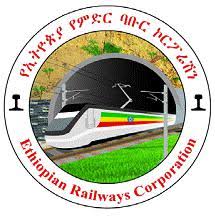Ethiopia: Optimal Railway Return Relies On Investment Model
In recent years, East African countries that
form the Horn of Africa have generally been experiencing unprecedented
economic growth. Whilst Ethiopia is no exception, the impact of the
recent global economic downturn has affected the region, but possibly to
a lesser extent than in some developed countries, mainly due to the
political stability which emerged during the same period.
It is anticipated that the region will eventually assist sub-Saharan Africa as a whole in overtaking the Middle East to become the second fastest growing region in the world after emerging Asia. Nigeria and Ethiopia are currently leading the indices of potential investor destinations in Africa and the African economic growth rates.

Ethiopia's enormous and generally unexploited resources along with an investment friendly environment have played a prominent role in attracting foreign direct investment (FDI). As a result, FDI has increased significantly over the past few years.
The country owes its position in the indices of African potential investor destinations to significant infrastructure investment, and expansion opportunities in railways.
Whilst it is clear that the country is endowed with abundant and diversified natural resources, the quality and quantity of public, private and freight transportation systems which are currently available in Ethiopia have severely restricted and will continue to restrict economic growth from these resources. Robust and sustainable systems need to be provided to best service the country's transportation requirements.
Within Ethiopia itself, there is significant mineral wealth which is as yet generally untapped, as well as the established export trade of coffee, livestock and other agricultural products, all of which can be significantly enhanced by the construction of an efficient railway system.
Further benefits can be generated from the expansion of Ethiopia's planned national railway network into neighbouring countries to enhance their economic potential. Rail transportation of petroleum products, minerals and containerised freight represent significant rail freight market share potential for the nation.
It is therefore quite evident that there is an immense need for additional capacity to be provided for the movement of agricultural and other local products, as well as mineral and other resources, both in Ethiopia and its neighbouring countries. However, these needs and values can only be realised through the construction of high capacity and sustainable rail links and supporting sea port facilities.
It is anticipated that the region will eventually assist sub-Saharan Africa as a whole in overtaking the Middle East to become the second fastest growing region in the world after emerging Asia. Nigeria and Ethiopia are currently leading the indices of potential investor destinations in Africa and the African economic growth rates.
Ethiopia's enormous and generally unexploited resources along with an investment friendly environment have played a prominent role in attracting foreign direct investment (FDI). As a result, FDI has increased significantly over the past few years.
The country owes its position in the indices of African potential investor destinations to significant infrastructure investment, and expansion opportunities in railways.
Whilst it is clear that the country is endowed with abundant and diversified natural resources, the quality and quantity of public, private and freight transportation systems which are currently available in Ethiopia have severely restricted and will continue to restrict economic growth from these resources. Robust and sustainable systems need to be provided to best service the country's transportation requirements.
Within Ethiopia itself, there is significant mineral wealth which is as yet generally untapped, as well as the established export trade of coffee, livestock and other agricultural products, all of which can be significantly enhanced by the construction of an efficient railway system.
Further benefits can be generated from the expansion of Ethiopia's planned national railway network into neighbouring countries to enhance their economic potential. Rail transportation of petroleum products, minerals and containerised freight represent significant rail freight market share potential for the nation.
It is therefore quite evident that there is an immense need for additional capacity to be provided for the movement of agricultural and other local products, as well as mineral and other resources, both in Ethiopia and its neighbouring countries. However, these needs and values can only be realised through the construction of high capacity and sustainable rail links and supporting sea port facilities.
No comments:
Post a Comment